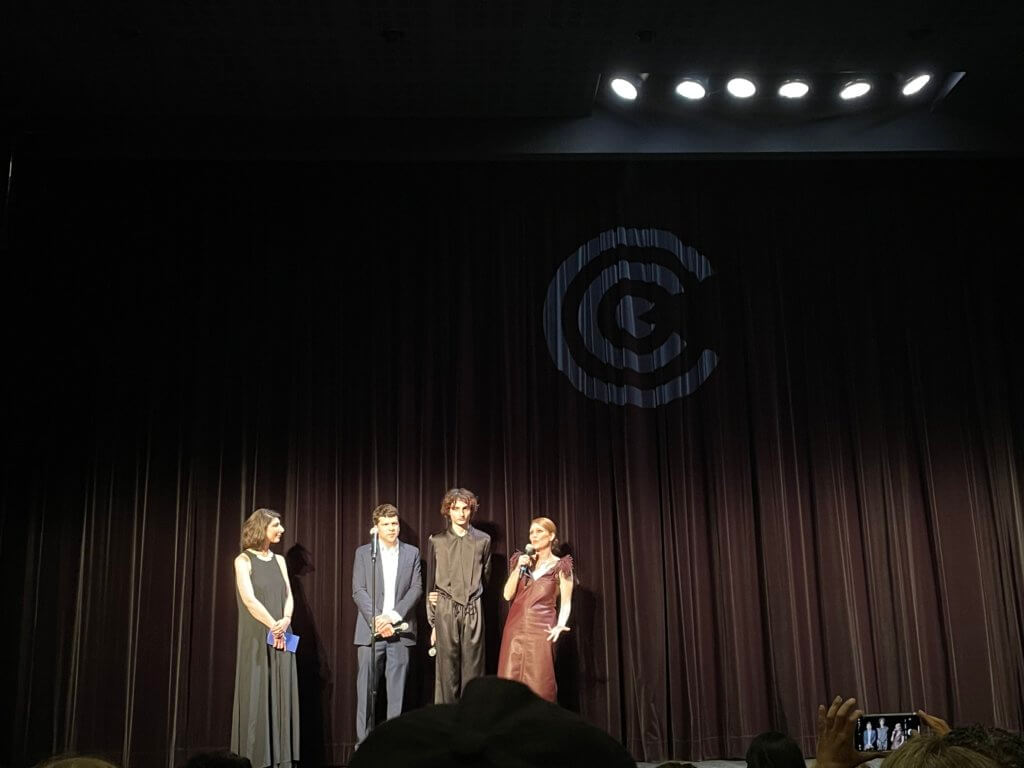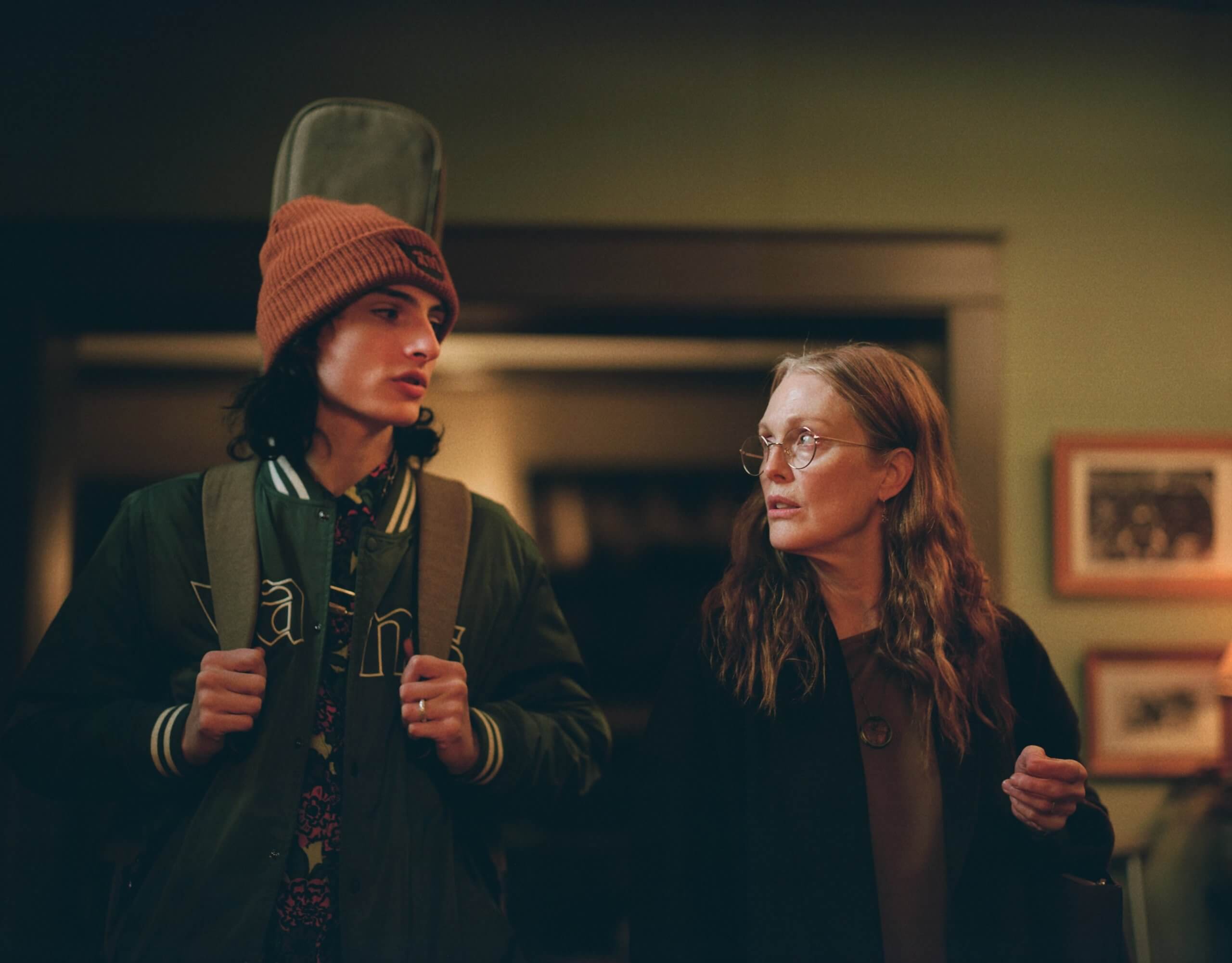Jesse Eisenberg talks in the exact way you would imagine—slightly awkward and very fast just like all his characters. After he thanked the audience for coming to his new film When You Finish Saving the World instead of the Top Gun premiere, Eisenberg sat down with all of us for the screening of his directorial debut at the International Critics’ Week’s opening ceremony.

When You Finish Saving the World is a coming-of-age comedy about the relationship between the teenager Ziggy, played by Stranger Things’ Finn Wolfhard, and his mother Evelyn, played by Julianne Moore. The condescendence in the film’s title fittingly describes both the son and his mother—Ziggy tries to turn his music live streaming “career” into a platform for political advocacy to impress his crush while the mother’s generous compassion is only reserved for the victims of abuse at the shelter that she runs, unable to share the same empathy and patience with her own son.
Eisenberg, who also wrote the screenplay, captures well the sudden and unexplainable fallout common in so many parents’ relationships with their children as they enter adolescence. As Evelyn drives his son to school one morning, what seems to be a genuine attempt from Ziggy to ask for advice on how to become more politically aware quickly turns to a heated argument between the two as Evelyn calls out his insincere motivations. She tells him how she used to bring him to all the marches when he was young, and instead of reminding him of his experiences with social justice, she blames him for his sudden loss of interest. The scene here gives an authentic portrayal of how frustrating communication often is between children and parents—she wishes him a good day at school only for Ziggy to slam the car roof as he leaves.
The film is honest in depicting the flaws of both Ziggy and Evelyn—painfully irritating in their own ways perhaps because they remind you of your own relationship with your child or parent. There are moments that are less clear in the film, such as Evelyn’s relationship with Kyle, the son of a victim at the shelter. Evelyn steps in as Kyle’s mother, helping him with college admissions, taking him to a restaurant that she and Ziggy used to go to, and even gives Kyle an old cap of Ziggy’s. Why she’s so readily available to Kyle as a mother but not Ziggy isn’t something that the film answers, but its lack of clarity also illustrates precisely the pains and complexities of being a parent.
The rejections that Ziggy and Evelyn both face ultimately seem to bring them closer together. The ending comes across as a bit too easy and does not address the layers of problems in their relationship. Throughout the film, it does seem like both the son and the mother are unhappy with the state of their relationship and wish to reconcile, yet how they can realistically do so is perhaps beyond this film.
